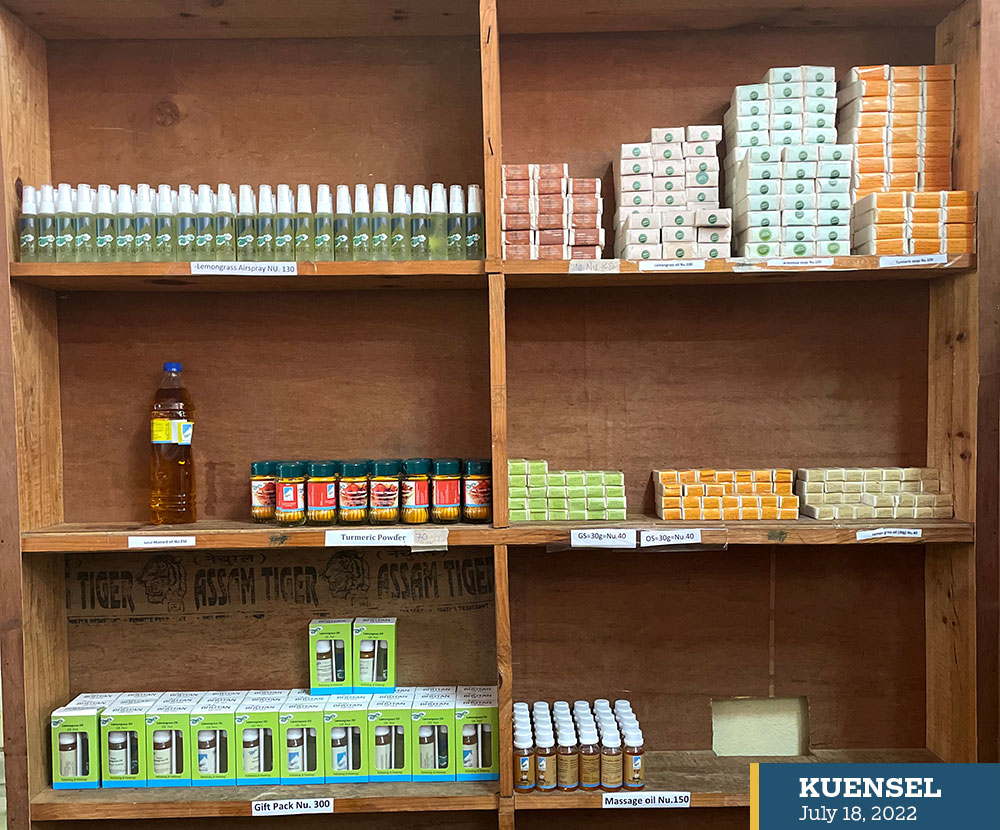Tshering Namgyal | Mongar
A private company, which makes most of its products from lemongrass oil extracted in eastern Bhutan, Bio Bhutan, is worried about declining lemongrass extractors.
Officials from Bio Bhutan said from the four dzongkhags of Mongar, Lhuentse, Trashigang and Trashiyangtse into lemongrass oil extraction work, only two groups have committed to continue the work this season.
Bio Bhutan, the only buyer of lemon grass oil from farmers stopped the activity since 2020 due to export barriers during the pandemic. It is, however, resuming the work.
The in-charge of Bio Bhutan’s collection centre in Sherichhu, Rinzin Wangchuk, said not many people are keen on taking up this business anymore although they increased the price over the years.
He cited how the price for a kilogramme of lemongrass oil has drastically increased from Nu 550 in 2008 to 1,400 in 2019.
He said better earning opportunities in construction sector and religious sentiments were the key reasons why people are not keen on the business.
People of Lhuentse and Trashiyangtse stopped distilling lemongrass oil in 2010.
Rinzin Wangchuk said the highest quantity of lemongrass oil Bio Bhutan collected from its only collection centre at Sherichu was 5,569 kilogrammes in 2019.
With only few groups showing interest this time, he said the quantity is expected to decline by half this season.
Bio Bhutan makes products like soap, air spray, massage oil applied for joint pains, mosquito repellant and tea from lemongrass oil and being sold at the sale counters at the head office in Thimphu and the collection centres at Sherichhu, Mongar, besides exporting it to India.
Meanwhile, Regional Agriculture Marketing Cooperative (RAMCO) in Mongar is in the process of reviving the old cooperative that even processed soap and vanished over the years.
Officials from RAMCO said currently there are 42 members from five gewogs of Chaskhar, Thangrong, Dramitse and Narang in Mongar dzongkhag and Udzorong in Trashigang dzongkhag.
Officials said they were also encouraging group members to be in enterprise mode and resume soap making and develop other products gradually.
“We’re also exploring both international and domestic market,” an official said.
To make the groups function efficiently, RAMCO is also planning to form sub groups in each gewog.
Meanwhile, the main challenge distillers face is not getting adequate firewood as most of the lemongrass growing areas fall under community forests (CF) and some distillers are not CF members.
The other reason, according to farmers, is that the distilling work is laborious.
Forestry officials have mapped and identified more than 500 acres of forests growing lemongrasses in the five gewogs.
The management plan to be carried out by forestry and RAMCO in collaboration also has lemongrass sapling plantation, weeding and harvesting techniques for sustainable harvesting.


